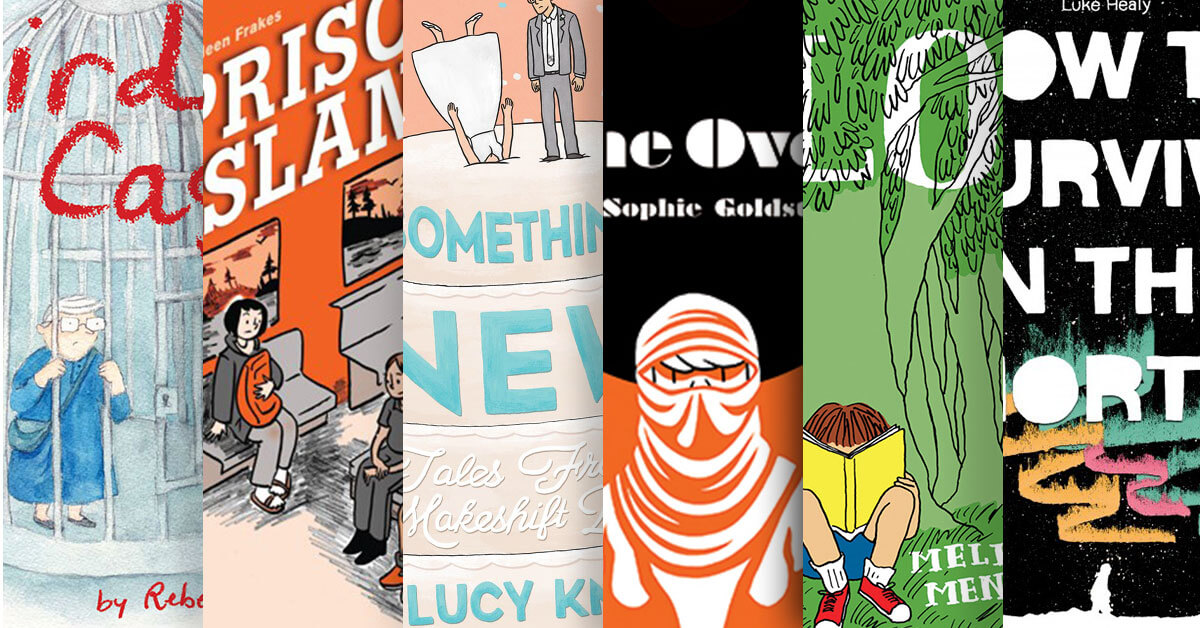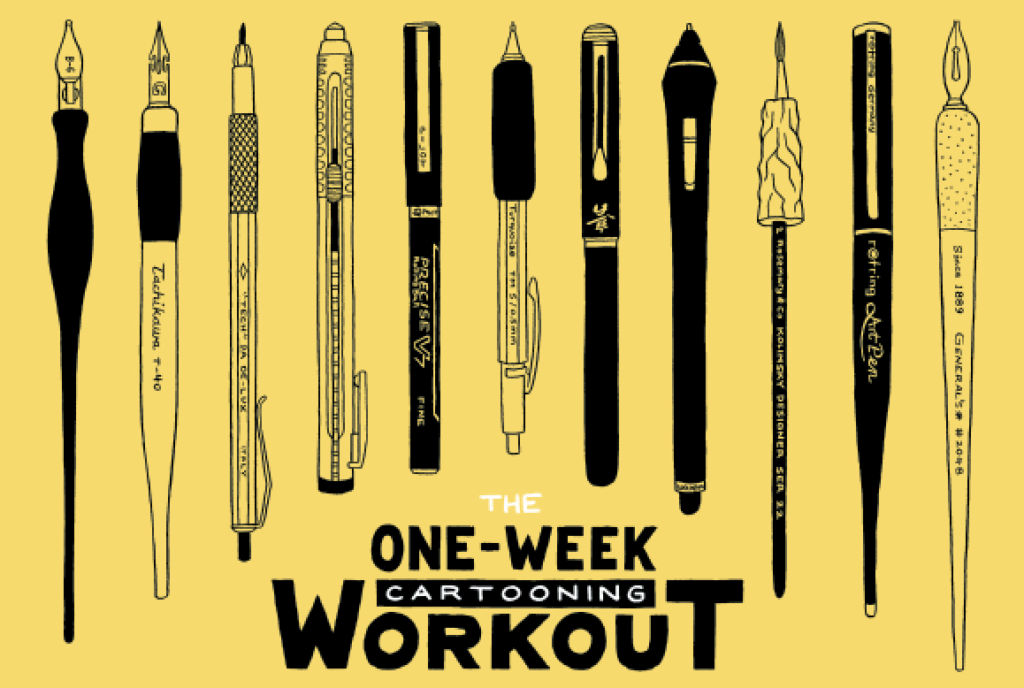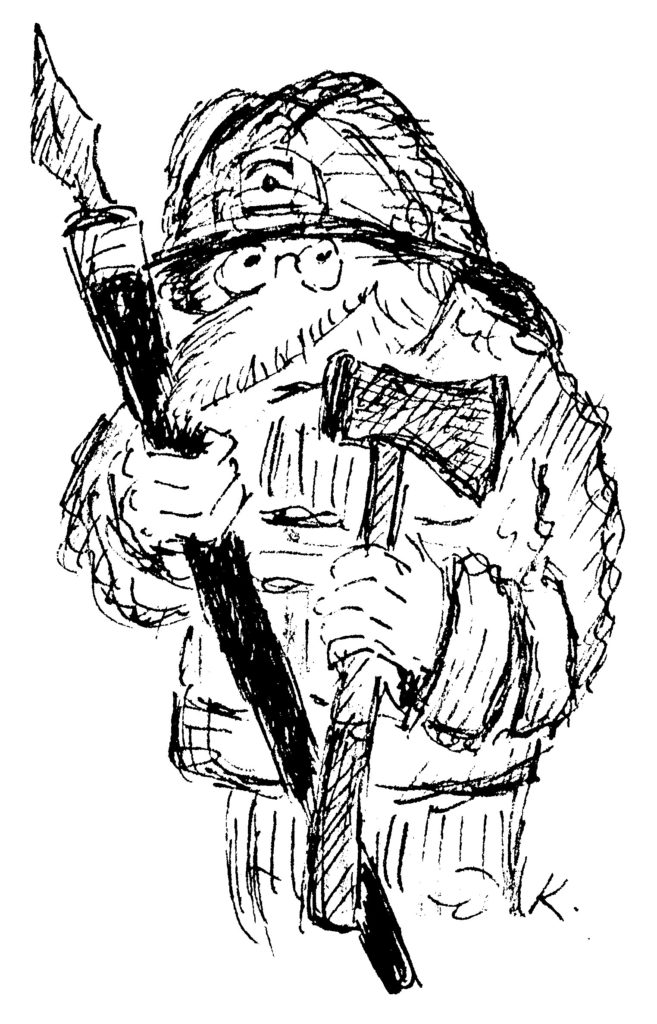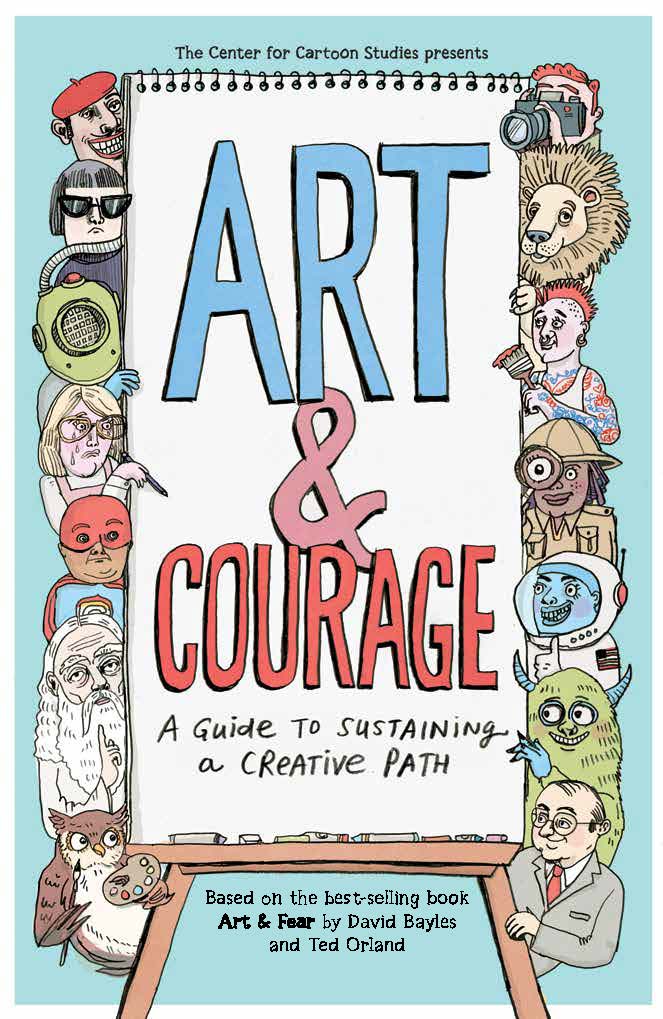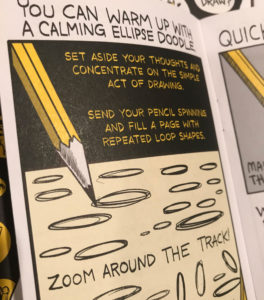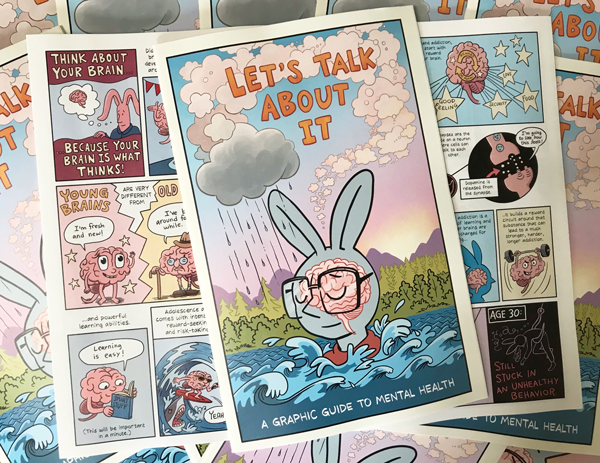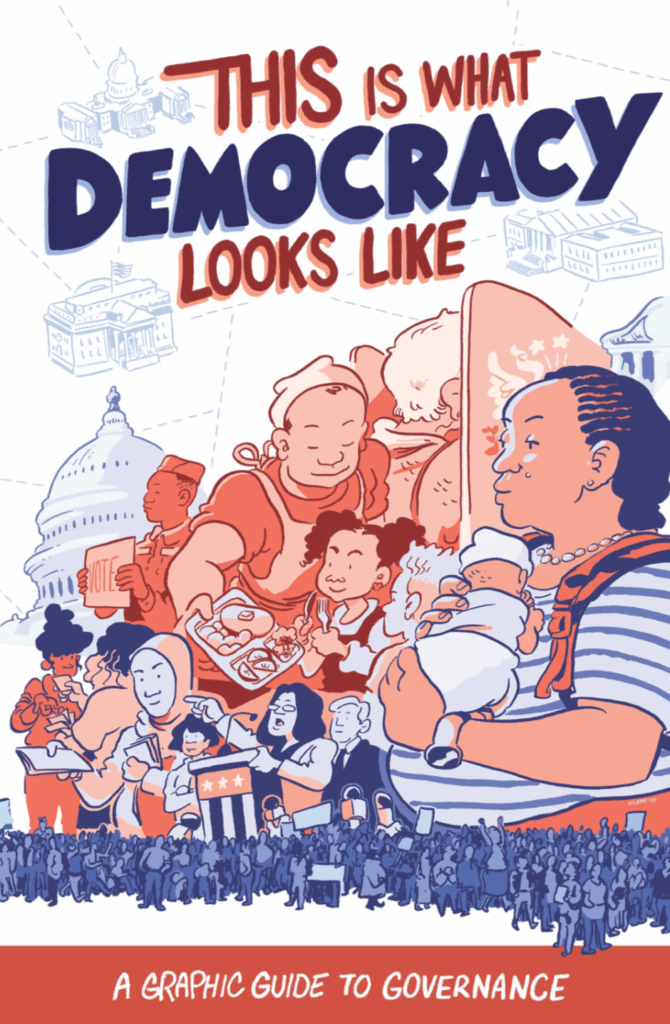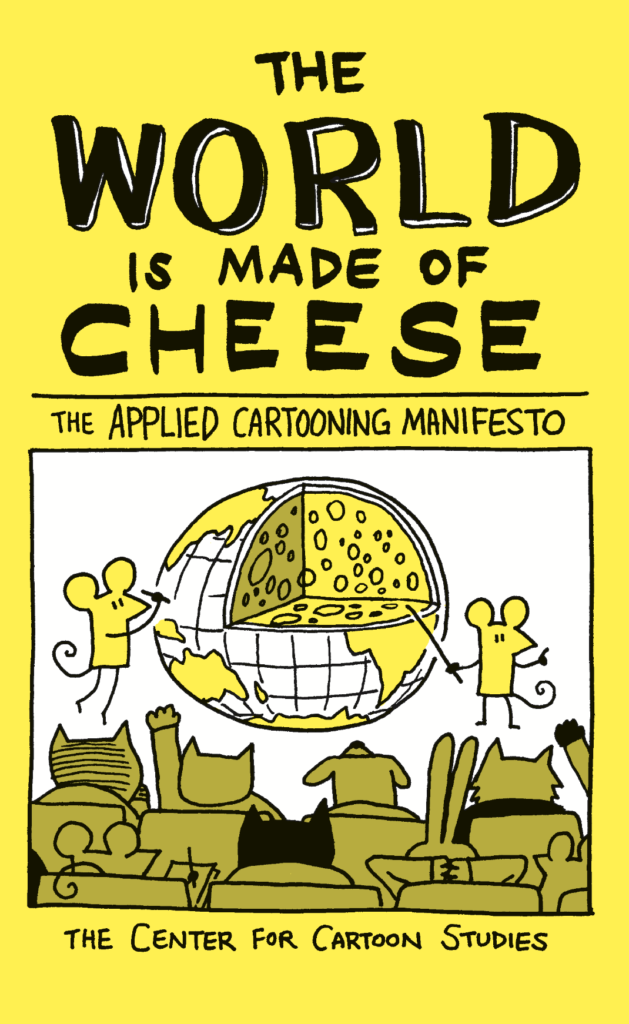Programs
The Center for Cartoon Studies (CCS) offers a two-year Master of Fine Arts (MFA) degree, One- and Two-Year Certificates, and summer workshops, with the option to complete the second year of the program in low residency.
Our Curriculum statement
As cartoonists, we set out to explore the past, present, and potential of comics.
At CCS, we set out to explore the past, present, and potential of comics. The school’s integrated curriculum spans the disciplines of writing, design, drawing and storytelling and accepts students at vastly different stages of their cartooning journey. Some have already built a readership, others have more inspiration than experience. CCS instructors are working artists who are also superb teachers. Collectively we share each other’s joys and sorrows and become deeply invested in each other’s success.
CCS recognizes that comics is a medium and not a genre. The CCS curriculum embraces Nausicaa, Moomin, healthcare comics and everything in between. We observe that comics readily connect people of all ages, nationalities, and economic backgrounds and believe that a cartoonist’s interpretive ability—to make sense of and share the stories they discover—is urgently needed in today’s world.
Visual narratives are how we communicate in the visual age and the cartoonist who develops a strategic visual approach can play an important role in helping individuals and organizations “see” more and communicate better. Comics can precisely frame visual narratives, quickly deliver complex information, and resonate with readers emotionally. CCS encourages students to take risks to achieve their artistic goals while establishing a flexible, sustainable practice.
And finally, cartooning is a dynamic visual language and like any language, it is most effectively taught through immersion. To communicate effectively in comics, we ask students to work hard and develop their voice through incessant practice.
Degree and Certificates
-
Master of Fine Arts (MFA) – a two year full-time program
-
Low Residency 2nd Year Option
-
-
Two-Year Certificate
-
One-Year Certificate
Master of Fine Arts
A Two-Year, Master of Fine Arts Degree Program. After completing the One-Year Program, the second-year curriculum revolves around a yearlong thesis project. The thesis program 2nd year may be completed on location or by distance in a low residency online and correspondence program. The MFA program requires a completed bachelor’s degree at the time of enrollment. Apply online now!
Two-Year Certificate Program
After completing the One-Year Program, the second-year curriculum revolves around a yearlong thesis project. The second year may be completed on location or by distance in a low residency online and correspondence program. Apply online now!
One-Year Certificate Program
This nine-month program (one academic year) is designed to quickly accelerate a cartoonist’s growth. CCS faculty, along with frequent visiting artists will introduce a myriad of tools, techniques, and approaches to cartooning. Writing, drawing, graphic design, screen-printing, and computer skills that relate to publishing will be covered. Apply online now!
Admissions
Click here for information on Admissions to The Center for Cartoon Studies MFA, Two-Year, and One-Year program.
Apply Online Now
Program
A snapshot of curriculum requirements by year, courses by term, total credits required for completion.
YEAR ONE: SEMESTER 1
- Cartooning Studio I 4.5 cr
- Drawing for Comics 3 cr
- Publication Workshop I 3 cr
- Survey of the Drawn Story I 3 cr
- Visiting Artists Seminar I 3 cr
Total Semester Credits, 16.5
YEAR ONE: SEMESTER 2
- Cartooning Studio II 4.5 cr
- Publication Workshop II 3 cr
- Survey of the Drawn Story II 3 cr
- Visiting Artists Seminar II 3 cr
- Drawing for Comics Workshop (Optional)
Total Semester Credits 13.5
YEAR TWO: SEMESTER 1
- Thesis Project I 6 cr
- Thesis Seminar I 3 cr
- Professional Practices 3 cr
- Visiting Artist Seminar III 3 cr
- Drawing for Comics (Optional)
Total Semester Credits 15
YEAR TWO: SEMESTER 2
- Thesis Project II 6 cr
- Thesis Seminar II 3 cr
- Visiting Artist Seminar IV 3 cr
- Internship 3 cr
- Drawing for Comics (Optional)
Total Semester Credits 15
Total Credits required for MFA and Two-Year Certificate: 60 cr
Total Credits required for One-Year Certificate: 30 cr
CCS admits students in the fall semester. Fall semester starts in early September and ends in late December, the spring semester begins in January and ends in early May.
Course Descriptions
Year One
Cartooning Studio I
Beginning with the creation of a single panel cartoon and culminating in a collaborative anthology of comics stories, this class places an emphasis on taking ideas from conception to final print form. Over the course of 15 weeks in Cartooning Studio, a given student usually produces more finished comics pages than they produced over the entire previous year. Focusing on clear communication, storytelling, and practical studio skills, students are challenged to explore different styles and narrative strategies. The Publication Workshop class is coordinated tightly with Cartooning Studio to ensure that each student’s technical and creative proficiencies are developing hand-in-hand.
Cartooning Studio II
A continuation of Cartooning Studio I that includes the challenging “classic comic” assignment and a graphic journalism assignment. The class also highlights new ways to apply the cartooning skillset, such as graphic facilitation, and will introduce the frameworks, vocabularies, and collaboration strategies necessary to help others shape and share their ideas. The class culminates with the production of a comic publication by each student.
Drawing for Comics
Students get hands-on training with various materials and methods for comics specific drawings. Students review drawing fundamentals as well as the more ambiguous methods found in comics drawing. This class encourages exploration over precision, and lessons are applicable to all students regardless of their abilities and drawing background.
Publication Workshop I
For a comic to connect with an audience it needs to be published. This class teaches students to prepare their comics for both print and web publication. Working in industry standards, students are taught how to use programs such as Photoshop, InDesign, and Illustrator and prepare files for publishers and printers. With a focus on graphic design, desktop publishing, and physical bookbinding, first year assignments go from “page-to-publication.”
Publication Workshop II
If the goal of the first semester of Publication Workshop is “page-to-publication”, then the second semester is all about seeing the publication as an art form unto itself. A greater focus is paid to graphic design and typography to help students become more sensitive to the nuances of design. The semester culminates in the final Cartooning Studio II assignment where students create a publication that more fully expresses the themes and aesthetics of their work. Non-Adobe programs like GIMP and Clip Studio are also introduced.
Survey of the Drawn Story I
From Japanese scrolls to the tapestries of Medieval Europe to the 19th century birth of the comic strip and beyond, this breathtaking course combines intensively illustrated lectures, independent readings and analysis of print technologies.
Survey of the Drawn Story II
This course covers late 20th century and early 21st century contemporary comics history with a broad international focus on self-publishing, zine culture, the rise of alternative comics and the genesis of the modern graphic novel. In-class presentations, guest creators/lecturers, and critical readings and discussions allow students to develop a deeper understanding of the modern classics.
Visiting Artist Seminar I
Visiting artists each week include the most celebrated cartoonists, children’s books authors, writers, and more. Guests share their creative process and professional pathways. Artist visits often include workshops and portfolio reviews.
Visiting Artist Seminar II
Political cartooning, graphic medicine, user experience comics, manga-inspired young adult fantasy, graphic journalists— this class is a continuation of Visiting Artist I with each week promising something new and surprising. This semester also includes “Industry Day” where leading publishers, agents, editors, and industry journalists come together to talk about the state of the industry and conduct one-on-one student reviews.
For a complete list of Visiting Artists click here.
Year Two
Thesis Seminar I and Thesis Seminar II
The thesis project is at the heart of CCS’s second year (senior) curriculum and is expected to reflect nine months’ worth of exploration and hard work. Building upon the skills acquired during year one, Thesis Seminar I and Thesis Seminar II provides the structure needed to see through a yearlong project while being open ended enough to accommodate the changing needs of a more ambitious work. The final project may be (but not limited to): a finished comic, a draft of a graphic novel, or the documentation of an applied cartooning project.
Seminar may include discussion of intention, structure, content, context and meaning of their work, sessions with guest critics and artists, and thesis production and design support. Each senior is provided studio space outside the schools’ classrooms and labs work spaces. The class culminates in the publication of the thesis project, a thesis review, and public exhibition of the work.
Thesis Project I and II– Independent Study
Students choose a thesis advisor to work with throughout the school year. Advisors have included established pros (Alison Bechdel, Lynda Barry, Jeff Smith), rising stars (K.L. Ricks, and CCS alum Sophie Goldstein) as well as respected industry professionals (editors, writers, etc). A full list of thesis advisors can be found here.
Professional Practices
This class helps students build a sustainable and professional artistic practice. Students are asked to think broadly about themselves while also attending to the many details that constitute an artist’s career. Topics covered include: contracts, intellectual property, tax returns, conventions/festivals circuit, graphic note taking and facilitation, and social media.
Visiting Artist Seminar III and Visiting Artist Seminar IV
From graphic journalists, to Marvel cartoonists to gag cartoonists, the parade of visiting artists continues into the second year providing a weekly dose of insight, inspiration, and practical career advice.
Internship
Students choose between community-based externships and industry internships. These have included working with veterans and clinicians, developing curriculum, teaching comics in public and private schools, and interning at online publications and traditional publishers.
The Unofficial Curriculum
In addition to the for-credit courses described above, constant enrichment opportunities abound. These include (but are not limited too):
Self-Directed Senior Studio. Organized by the senior class, students, faculty, local professionals, and visiting artists share expertise and extend networks in an informal setting.
Field Trips: From Montreal to Washington D.C., students criss cross the northeast visiting comic art festivals, conventions, artist studios, publishers, print shops, museums and more.
Dartmouth College. Minutes away from CCS campus, Dartmouth College offers a constant stream of free exhibitions, symposiums, and events (Marjane Satrapi, Miranda July, Anna Deavere Smith, Jules Feiffer, etc.). CCS’s students also have access to Dartmouth’s Library and letterpress print shop.
Mother Nature. No matter what the season, Vermont and New Hampshire entice students to step away from their drawing boards and experience the great outdoors. Hikes, ski trips, swimming holes, and rafting trips do wonders for physical and mental health.
Beyond our production lab, local Two Rivers Printmaking Studio provides student memberships for studio access, workshops, and classes.
COURSE SCHEDULE
A detailed semester schedule and academic calendar is provided to each admitted student prior to the beginning of the semester. It is also posted in the classroom and lab, and on the Intranet (cartoonstudies.org/intranet). Classes meet Monday through Thursday between 10am and 6pm.
FULL-TIME / PART-TIME ENROLLMENT
The Center for Cartoon Studies offers programs that are for full-time enrollment. Part-time status is not available at this time. A Low-Residency Option is available for the 2nd year of the program.
CREDIT TRANSFER INTO PROGRAM
The Center for Cartoon Studies doesn’t accept credits from outside institutions. Our programs are structured to accommodate varied levels and the curriculum is designed as a sequential program.
TRANSFER STATEMENT
Credits earned at The Center for Cartoon Studies are transferable only at the discretion of receiving school.
The Center for Cartoon Studies is approved to grant the Master of Fine Arts Degree and One- and Two-Year Certificates by the State of Vermont Agency of Education and is a member of the Association of Vermont Independent Colleges and the Vermont Higher Education Council (VHEC). CCS is not accredited. Read The Center for Cartoon Studies: The Accreditation Question by Andy Warner ′12.
